Salt Symposium
Bolton & Menk will be hosting the 25th annual Salt Symposium from August 6-7, 2024. This will be a two-day live-streamed event covering all sources of chloride pollution. Content will stream both days live from 7:30 a.m. to about 3 p.m.
Benefits of Attending
- Latest research in chloride
- Hear from experts from across the county working on chloride
- New technology and innovation in salt reduction
- Discussion on new sources of chloride
- Connect with vendors, sponsors, and other participants
For registration details, sponsorship support, or to submit a presentation topic idea, please click here.
Salt Symposium Acquisition
Bolton & Menk acquired the responsibilities of the Salt Symposium from the acquisition of Fortin Consulting on January 1, 2022. Fortin Consulting has been a leader in advanced chlorides management and reduction research and education for 25 years. They have provided project design and coordination that unites citizens, environmental organizations, and industry with the common goal of protecting freshwater resources. To read more about the acquisition of Fortin Consulting, click here.
2023 Speaker Presentation Info
Tuesday August 1 I New Directions in Chloride: Morning Sessions
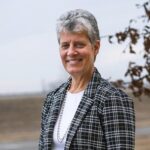
Connie Fortin
Low Salt Strategist
Bolton & Menk, Inc., Senior Project Manager
Connie is recognized as a national expert on salt reduction strategies. With 40 years’ of experience, she began her career in the software design industry before leaving to put her energy into protecting the environment and our waters. In 1996, she founded Fortin Consulting with the goal to unite citizens, environmental organization, and industry leaders in protecting freshwater resources. In the beginning of 2022, Fortin Consulting was acquired by Bolton & Menk, Inc. where Connie has been working on integrating her extensive knowledge on chloride and its impacts into the Bolton & Menk’s repertoire. She enjoys finding ways to facilitate change that is both practical and progressive.

Debbie Balika
Balancing Short Terms Gains Against Long Terms Impacts
Conservation Ontario, Source Water Protection Manager
Debbie Balika has been the Drinking Water Source Protection Manager at Conservation Ontario since July 2020. Previously, she worked at Kawartha Conservation in Lindsay, Ontario as the Water Quality Specialist for 5 years. Debbie has been working in the field of water quality research since 2009. Other experience includes teaching at Lakehead University in Orillia as a Laboratory Instructor and Contract Lecturer. She holds a Master of Science in biology, a Bachelor of Education, and an Honours Bachelor of Arts and Sciences in interdisciplinary studies. She is a strong proponent of proactive measures to protect our drinking water resources.
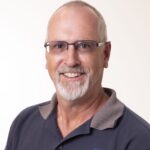
Scott Przybilla
Our Path to Chloride Reduction
City of Marshall, Assistant Superintendent
Scott Przybilla has been working in the water/wastewater industry since 1990 and is currently the Assistant Superintendent at the City of Marshall Wastewater Treatment Facility. He is a graduate of the St. Cloud Technical College Water and Wastewater Treatment Technology program and has been with the City of Marshall Wastewater Treatment Facility for the past 19 years. Scott has been actively involved with Marshall Wastewater Treatment Facility’s chloride reduction efforts since 2012.
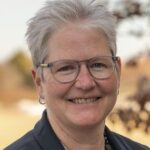
Carolyn Dindorf
Our Path to Chloride Reduction
Bolton & Menk, Inc., Limnologist
Carolyn is a Limnologist with Bolton & Menk, Inc. She holds a Bachelor of Arts in biology and chemistry and a Master of Arts in biology with a limnology emphasis. Her love for the natural environment can be encapsulated with her expertise in chlorides, aquatic invasive species, shoreline restoration, technical writing, and research and education pertaining to reducing impacts of chlorides from water softening, winter and fertilizer. Carolyn’s work revolves around protecting and improving water resources—contributing her extensive knowledge to environmental projects to reduce risks to the environment and its inhabitants.

Laura Sevcik
How Industry can Identify and Minimize Chloride Use to Reduce Costs and Prevent
Pollution
Minnesota Technical Assistance Program, Pollution Prevention Specialist
Laura Sevcik is an Associate Engineer at the Minnesota Technical Assistance Program. She joined MnTAP after completing her Bachelor of Science and Master of Science in mechanical engineering at the University of Minnesota – Twin Cities. She works with Minnesota businesses on pollution prevention, focusing on water conservation, safer chemical alternatives, energy efficiency, and industrial chloride reduction.

Alex Mathews, PH.D.
Reuse of Water Plant Residuals as Deicing Chemicals
Kansas State University, Professor
Alexander Mathews is an Emeritus Professor of Environmental Engineering at Kansas State University. Professor Mathews is well known nationally and internationally as an expert in physicochemical processes and their applications to environmental remediation, as well as in resource recovery using bioconversion processes. He has been engaged in research, teaching, and consulting engineering activities for over four decades. He has received research grants from the National Science Foundation (NSF), USDA, DOD, and other agencies to conduct research in many basic and applied areas including adsorption processes, ozone oxidation technology, resource recovery using bioconversion processes, fate of metals in hazardous waste combustion systems, and other topics. Most recently, he was engaged in the utilization of water softening residuals in the production of biodegradable deicers. He has published more than 80 articles and has made more than 100 presentations at national and international technical society meetings. Professor Mathews has served as a Visiting Professor at the University of Queensland, Australia, Gifu University, Japan, and as a Visiting Scholar at the Hong Kong Institute of Science and Technology. He has served as a consultant to private companies on engineering design issues, and to the U.S. Navy on environmental remediation related R&D. He received his PhD degree from the University of Michigan and is a registered professional engineer in the State of Kansas.

Marco Graziani
Chloride Water Quality Trading
Minnesota Pollution Control Agency, TMDL Coordinator
Marco is the Total Maximum Daily Load (TMDL) Coordinator with the Minnesota Pollutions Control Agency’s Municipal Wastewater section. He holds a Bachelor of Arts in environmental studies from Macalester College. Since 2004, Marco has worked on various water quality trading projects for the MPCA and coauthored the MPCA’s 2022 Water Quality Trading Guidance.

Melissa Wilson, PH.D.
Chlorides in Animal Waste
University of Minnesota, Associate Professor
Melissa is an associate professor and the manure nutrient management specialist at the University of Minnesota with appointments in both research and extension. Her research focuses on filling knowledge gaps about manure nutrient cycling as farming practices, weather, and technologies change.
Tuesday August 1 I New Directions in Chloride: Afternoon Sessions

Alycia Overbo
Examining Chloride in an Agricultural Watershed Using a Mass Balance and Simple Hydrologic Model
University of Minnesota, PH.D Candidate
Alycia Overbo is a PhD Candidate in the Water Resources Science program at the University of Minnesota. Her research focuses on sources of chloride pollution to the environment and potential solutions for Minnesota communities. Alycia works at Minnesota Department of Health as Supervisor of the Communications and Strategic Initiatives Unit. In this role, she oversees planning, evaluation, and coordination of communications and strategic policy initiatives for the state public drinking water program. She holds a Master of Science in public health from University of North Carolina at Chapel Hill, a Bachelor’s in biology from St. Olaf College, and is a former Peace Corps volunteer.

Andrea Renshaw
Halophytes for Mitigating Deicing Salt Runoff Pollution
Virginia Tech, Lab and Research Specialist
Andrea Renshaw graduated from Virginia Tech in 2021 with a Master’s in agriculture and life sciences (concentration: environmental science). Her master’s project focused on using halophytes and soil amendments to remediate salt polluted roadside soils. She received a Bachelor’s degree from West Liberty University in biology: ecology, evolution, and organismal biology where she participated in researched center on disease transmission in natural systems, bioremediation of reclaimed strip mine soils using American chestnut backcross hybrids and mapping their ectomycorrhizal associations, heading the WLU Tomato Genetics Project and managing their seed bank.
Andrea is currently a Lab and Research Specialist with the VT Small Grains Breeding Program. She has had a diverse laboratory history as well working as a microbiology technician for a food science laboratory in Wisconsin, briefly as a COVID PCR diagnostics lab supervisor in Chicago, and a Lab Support Manager for VT’s College of Veterinary Medicine. She was also briefly a wacky science educator for K-5 kids in Chicago. She is a Virginia Master Naturalist and volunteered as a Wildlife Transporter for the Wildlife Center of Virginia. She is interested in nature-based climate change and pollution solutions with a focus on bioregionally appropriate species.

Sawyer Bailey
Road Salt: An Environmental Justice Contaminant
ADKAction, Executive Director
Sawyer Bailey has served as AdkAction’s Executive Director since March 2022. AdkAction is a New York-based nonprofit that creates projects that address unmet needs, promote vibrant communities, and preserve the natural beauty of the Adirondack Park for all, with a vision to significantly improve the social, economic, and cultural lives of local residents and enhance the long-term natural resources of the region. Road salt reduction is an issue that led to AdkAction’s founding, and it is one on which it is still at work today.
Sawyer brings significant experience in environmental conservation and justice with organizations and communities across New York and New England. Sawyer earned her Bachelor’s in policy studies from the Maxwell School at Syracuse University, and her Masters of Environmental Management from Yale University’s School of the Environment. She is the Co-Chair of the Adirondack Food Systems Network, and has presented at the New York State and National Land Trust Rally and the Adirondack Food Justice Summit.
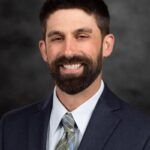
Kevin Masarik
Chloride in Wisconsin Private Wells
University of Wisconsin – Stevens Point, Groundwater Education Specialist
Kevin Masarik is an integrated specialist with UW – Extension in the College of Natural Resources at the University of Wisconsin – Stevens Point. His extension teaching focuses on groundwater and drinking water quality education targeted towards populations served by rural residential well water systems. Other aspects of his work include understanding the relationship between agricultural land use and water quality, geologic related groundwater contaminants, and utilizing the Center’s well water data to educate the public about important groundwater quality concerns where they live.

Jessica Wilson
Introducing the Low Salt, No Salt Minnesota Program
City of Edina, Water Resource Manager
Jessica Wilson is the Water Resources Manager for the City of Edina. She holds a Master’s Degree in Water Resources Science from the University of Minnesota – Duluth and a Bachelor of Science in Applied Science from the University of Wisconsin – Stout. Her work involves flood risk reduction, stormwater runoff management, and provision of clean surface water.
Wednesday August 2 I Snow and Ice Management: Morning Sessions

Brooke Asleson
MPCA Smart Salting Tool
Minnesota Pollution Control Agency, Chloride Program Administrator
Brooke Asleson has worked at the Minnesota Pollution Control Agency since 2007 where she collaborates with federal, state, local partners, and research institutions to protect Minnesota’s water resources. Since 2008, Brooke has been working on chloride and water quality issues at the MPCA. The core of that work has been developing partnerships with a wide variety of professionals to develop strategies that reduce chloride while supporting public needs.
Brooke coordinates the MPCA’s Chloride Reduction Program that includes the highly successful Smart Salting training program as well as the new Chloride Reduction Grant program and many other resources and tools to help communities reduce salt use.
Brooke earned her Master of Science in Water Resources Science from the University of Minnesota. Prior to attending graduate school, she worked in the lab at the Metropolitan Council’s Metro Water Treatment Plant. In her free time, Brooke enjoys spending time with her family at the lake, paddle boarding, kayaking, or just floating around!

Alex Klein-Paste
Optimizing Salt Use During Snow Storms in Norway
Norwegian University of Science and Technology, Professor
Alex Klein-Paste is a Professor at the Norwegian University of Science and Technology (NTNU), department of Civil and Environmental Engineering. He teaches operations and maintenance and of roads and loves to supervise students. He is the co-founder and leader of Norwegian Winter Maintenance Research Center since 2013. As a researcher, he tries to understand better how salt and other anti-/de-icing chemicals physically work and how winter maintenance professionals can use salt to create robust and safe road surface conditions with minimum environmental impact.
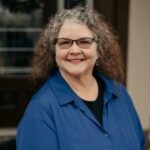
Kristi Avalos
ADA Doesn’t Go Away When It’s Cold Out
Accessology Too, LLC., Chief Executive Operator
Kristi Avalos, President/CEO of Accessology Too, LLC, is a nationally renowned leader in providing accessibility consulting services and is a sought-after speaker with a knack for using an upbeat approach to help others understand the complexities of ADA compliance. Kristi has been involved with the United States Access Board, Department of Justice, and other agencies and organizations that have shaped accessibility legislation and trends since the early 1980’s. In 1990 Kristi founded Accessology Too, LLC which is a national leader in providing accessibility consulting services and is one of the largest U.S. firms dedicated solely to access issues. With Accessology, Kristi has worked on accessibility compliance with numerous multi‐million-dollar projects, including education and healthcare institutions of every type and size, during all stages from schematics to construction. Since 2005 Accessology has specialized in the development, execution, and monitoring of the required ADA Transition Plans for Title II entities to help them avoid access-related litigation since so much litigation is tied to not having a Transition Plan on file. Kristi Avalos and her team at Accessology are committed to removing structural and attitudinal barriers that adversely impact people with disabilities.

Andy Erickson, PH.D.
Five Things We Learned About Chloride: A Summary of Road Salt Research
St. Anthony Falls Laboratory, Research Manager
Andy Erickson, PhD, PE, is a Research Manager at St. Anthony Falls Laboratory and the University of Minnesota and registered professional engineer in Minnesota. Dr. Erickson’s research pursues an understanding of water quality in urban and agricultural watersheds, assessment, and maintenance of stormwater treatment practices, and developing new stormwater treatment technologies such as the Iron-Enhanced Sand Filter. Dr. Erickson is lead author for the book, “Optimizing Stormwater Treatment Practices: A Handbook of Assessment and Maintenance”. and the editor of the University of Minnesota Stormwater Newsletter to approximately 1900 email subscribers, and leads the Minnesota Stormwater Seminar Series for approximately 170 stormwater practitioners per month.
Dr. Erickson has given over 245 presentations, over 30 invited guest lectures, and over 45 one- and two-day professional trainings and workshops. Dr. Erickson is the Vice Chair of the ASTM international E64 Committee on Stormwater Control Measures and a member of the Water Environment Federation Stormwater Institute Advisory Board. Dr. Erickson also serves the University of Minnesota as the Chair of the Water Council, a member of the St. Anthony Falls Lab Executive Committee, a member of the Civil, Environmental, and Geo-Engineering Graduate Faculty, an affiliate member of the Water Resources Science Graduate Program, a member of the Center for Transportation Studies Scholar Program, and a member of the Environment and Energy in Transportation Research Council.
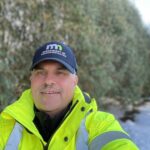
Dan Gullickson
Drift Free Road and Ditch Design
Minnesota Department of Transportation, Blowing Snow Control Shared Services Supervisor
Dan Gullickson is a University of Minnesota Forestry graduate with over 30 years’ experience working with public and private landowners installing windbreaks, shelterbelts, and snow fences to better manage blowing and drifting snow. Dan chaired Minnesota’s Interagency Living Snow Fence Task Force that received the US Department of Transportation design merit award for the publication Catching the Snow with Living Snow Fences.
Dan has served on 7 research projects with the University of Minnesota to better understand Minnesota’s winter climate, benefit costs, and the social science surrounding blowing snow. He served on 2 solar snow fence research projects with North Dakota State University. Dan is the Blowing Snow Control Shared Services Supervisor with the Minnesota Department of Transportation.

Chris Passmore
Utilizing On-Truck Weather Stations to Recommend Application Rates
Flodraulics Controls Ltd., Director of Technologies
Chris Passmore is the Director of Technologies for Flodraulic Canada. He has worked at Flodraulic for 17 years specializing in mechatronics and automation design. Chris’s focus is on emerging technologies and ensuring that Flodraulic is a leader in off-highway electrification and automation.
Wednesday August 2 I Snow and Ice Management: Afternoon Sessions

Scott Koefod, PH.D.
Towards a Better Understanding of Pre-wetting – Insights from the Lab
Cargill, Principal Scientist
Scott Koefod received his Ph.D. in inorganic chemistry from the University of Minnesota in 1990, and did post-doctoral work at the University of Illinois. Scott is the Principal Scientist for Cargill Salt, where he has worked for 31 years in the areas of deicing technology and other salt applications. Scott is the inventor on 23 U.S. patents related to salt and deicer technology. Scott was also a chemistry instructor at the University of Minnesota for many years.

Laura Fay
Efficacy, Cost, and Impacts of Non-Chloride Deicers
Western Transportation Institute at Montana State University, Senior Research Scientist and Program Manager
Laura Fay is a Senior Research Scientist and Program Manager for Cold Climates Operations & Systems research group at the Western Transportation Institute at Montana State University. She has conducted and led research in the fields of winter maintenance operations and low volume roads since 2006. Laura has dedicated her career to supporting state, federal, and local transportation agencies in the identification and implementation of best practices through applied research. This has been demonstrated in her publication record, and volunteer efforts serving on the Transportation Research Board (TRB) Winter Maintenance Committee and currently serves as committee chair for the TRB Low Volume Roads Committee. Laura’s technical background was developed from gaining a Master of Science in Environmental Health from the University of Nevada, Reno, and a Bachelor of Science in Earth Sciences from the University of California, Santa Cruz.
Chris Ohm (Retired)
Designing Highways with Winter in Mind
Wisconsin Department of Transportation, Chief of Roadside Facilities
Chris graduated from Marquette University in 1991 with a Bachelor of Science in Civil Engineering. He is also a professional engineer and has worked for the Wisconsin Department of Transportation for the last 32 years. Chris has spent 31 years in highway maintenance and operations with 25 years at the Madison Region office. While at the region, he was responsible for coordination with the other department of transportation sections on all maintenance coordination issues as well as working with the County contractors to provide a consistent product following policy. He has spent the last 7 years at the central office supervising all the program areas in Maintenance and ended his career as Chief of roadside facilities and program Management.

Caleb Dobbins
I Am an Environmentalist, I Want to Cut Trees
City of Manchester, Chief Highway Engineer
Caleb Dobbins is currently the Chief Highway Engineer for the City of Manchester, New Hampshire and had until recently served as the State Highway Maintenance Engineer for the New Hampshire Department of Transportation (NHDOT) from 2006 to 2022. His position was responsible for the administration of the Bureau of Highway Maintenance, encompassing the Headquarters section based in Concord as well as the operation of the 6 highway districts located throughout the state. He had been with the NHDOT since 1989, serving as a Contract Administrator for the Bureau of Construction until 2001, when he joined the Bureau of Highway Maintenance as the Assistant State Highway Maintenance Engineer.
Mr. Dobbins has also served as a member of the AASHTO Subcommittee on Maintenance, the AASHTO Region 1 Representative and Chairman to the Snow and Ice Cooperative Program (SICOP) as well serving on a numerous FHWA/NCHRP/TRB research projects and committees. He holds a Bachelor of Science in Civil Engineering from Carnegie-Mellon University and is a licensed professional engineer in the State of New Hampshire

Tim Olson, P.E.
Snow Storage: A Salt Reduction Strategy
Bolton & Menk, Inc., Principal Water Resources Engineer
Tim is a principal water resources engineer who joined Bolton & Menk in 2006. His experience includes project management in both design and construction of complex water resources and environmentally sensitive projects. He specializes in comprehensive surface water management planning, innovative best management practice design, hydrologic and hydraulic modeling, drainage design and construction plan review, and NPDES Phase I & II MS4 and construction stormwater permitting requirements. He couples GIS techniques with water resources design and analysis. Tim has a passion for stormwater and water quality education and participates in several stormwater-related steering committees and stakeholder groups.
